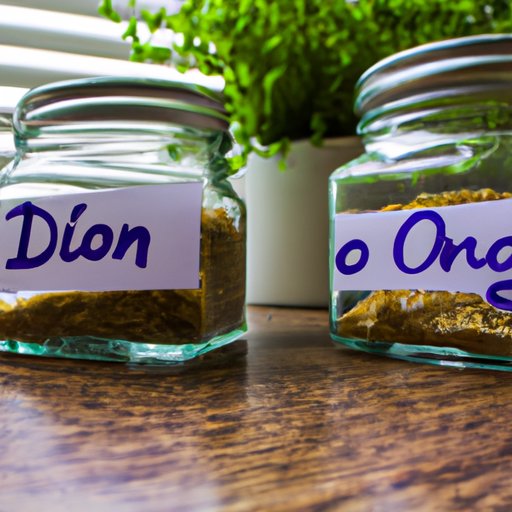
I. Introduction
As the legalization of marijuana spreads across the globe, there has been increasing interest in the consequences of cannabis consumption. One of the most pressing questions is whether it is possible to overdose on weed. In this article, we will explore the scientific evidence surrounding cannabis toxicity and provide tips for safe consumption.
II. Understanding Cannabis Toxicity
Cannabis contains various chemicals, including THC (tetrahydrocannabinol) and CBD (cannabidiol), which interact with the body’s endocannabinoid system. THC is the psychoactive component of marijuana that produces the “high” sensation, while CBD is non-intoxicating and has potential therapeutic benefits. The effects of cannabis depend on several factors, including the method of consumption, the potency of the strain, and individual tolerance.
III. Can You Overdose on Weed?
Contrary to popular belief, it is unlikely to overdose on marijuana in the traditional sense. A 2020 study published in the journal Current Opinion in Psychology concluded that “there is no known lethal dose of THC.” However, consuming high doses of THC or using cannabis in excessive amounts can lead to adverse effects and even psychological distress. This is commonly known as “greening out,” which is a term used to describe the symptoms of cannabis toxicity.
IV. Overdosing on Weed: How Much is Too Much?
It is essential to understand your individual tolerance when consuming cannabis. The dosage of THC that triggers adverse effects varies between individuals, and it is affected by several factors, such as weight, metabolism, and previous experience with marijuana. A good rule of thumb is to start with a low dose and gradually increase it until you achieve the desired effect. The recommended dosage for safe consumption is up to 10 milligrams of THC per serving, with a waiting time of at least 2 hours before consuming more.
When it comes to edibles, it is crucial to be especially cautious, as the onset of effects can take hours to manifest fully. This can lead to the temptation to consume more, which can result in excessive THC ingestion and adverse effects. Always wait for the edible’s effects to take hold before consuming more, and keep the dosage low.
V. Weed Overdose: Common Symptoms and How to Respond
There are several physical and psychological symptoms associated with cannabis toxicity, which are similar to the side effects of excessive alcohol ingestion. These include nausea, vomiting, dizziness, confusion, anxiety, paranoia, and hallucinations. If you experience any of these symptoms, it is vital to stop cannabis consumption immediately and seek a quiet, safe environment. Stay hydrated and try to relax by practicing deep breathing exercises or meditation techniques. If the symptoms persist or worsen, seek medical attention.
VI. Exploring the Dangers of Cannabis Toxicity
While the short-term effects of cannabis toxicity are typically mild and manageable, chronic high-dose use can lead to long-term consequences. These can include cognitive impairment, memory loss, and addiction. Additionally, vulnerable populations such as pregnant women, adolescents, and people with mental health issues may be at a higher risk of adverse effects. It is essential to educate yourself about the potential risks of cannabis and make informed decisions about consumption.
VII. The Truth about Weed Overdose: Debunking Popular Misconceptions
There are several misconceptions surrounding cannabis toxicity that can lead to unnecessary panic or confusion. One of the most common is the belief that cannabis can lead to fatal overdose. As we mentioned earlier, this is not supported by scientific evidence. However, it is essential to understand the difference between overdose and adverse effects. While cannabis consumption may not lead to lethal outcomes, it can still lead to physical or psychological distress, particularly in high doses.
VIII. Avoiding the Dangers of Cannabis Overdose: Tips for Safe Consumption
There are several strategies you can employ to reduce the risk of cannabis toxicity and promote safe consumption. First, always choose high-quality products from reputable sources and pay attention to the potency and dosage. Next, experiment with different strains and delivery methods to find what works for you. Start with low doses and gradually titrate to avoid overwhelming effects. Hydration, ventilation, and relaxation techniques can also help mitigate adverse effects.
IX. Conclusion
In conclusion, while the possibility of weed overdose may be a concern for some cannabis users, it is important to understand the scientific evidence surrounding cannabis toxicity. By practicing responsible consumption and arming yourself with information, you can enjoy the potential benefits of cannabis while minimizing the risks. If you experience adverse effects, don’t hesitate to seek medical help or reach out to cannabis support resources.





